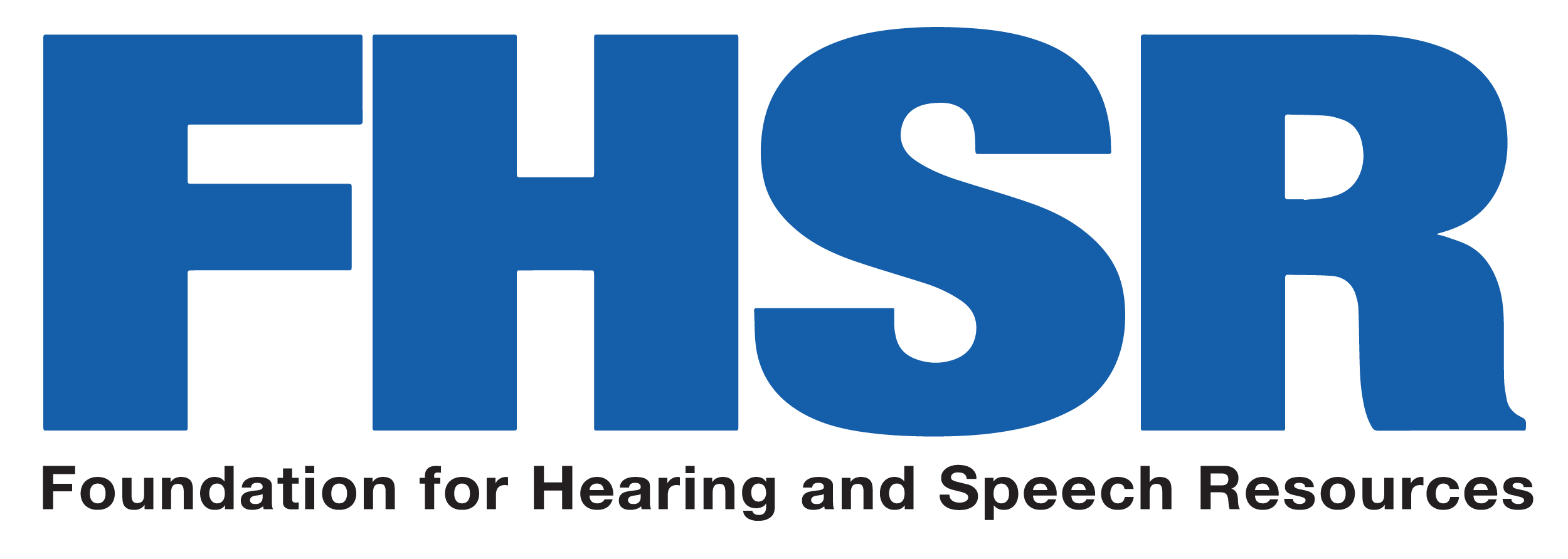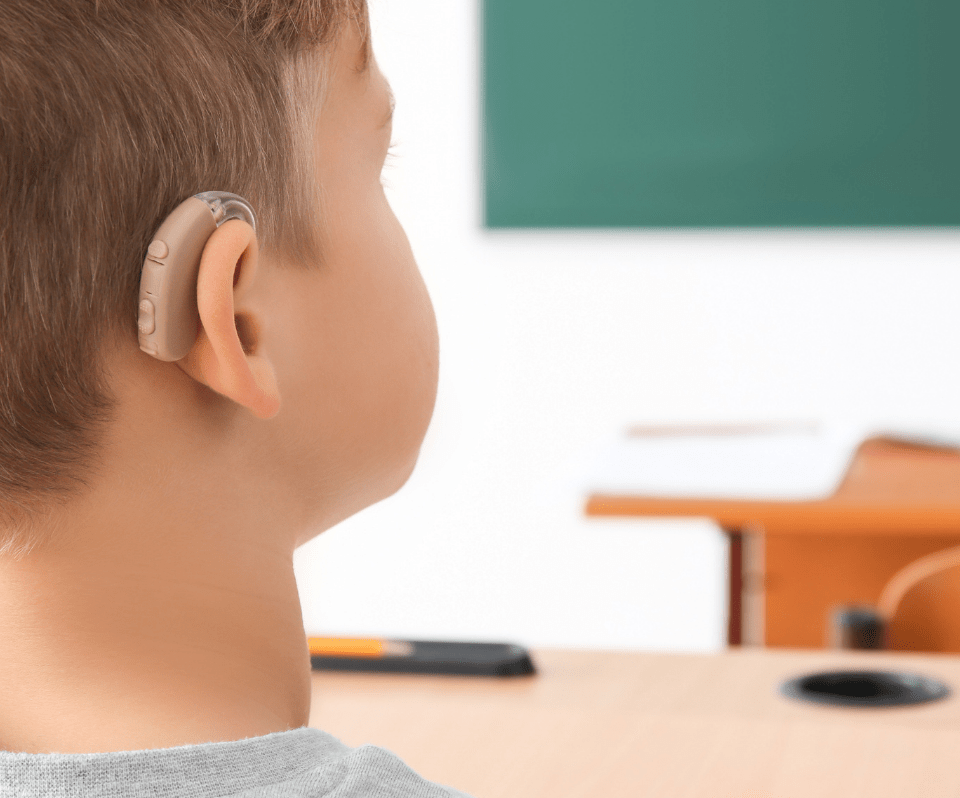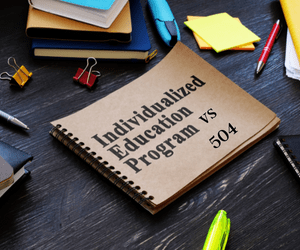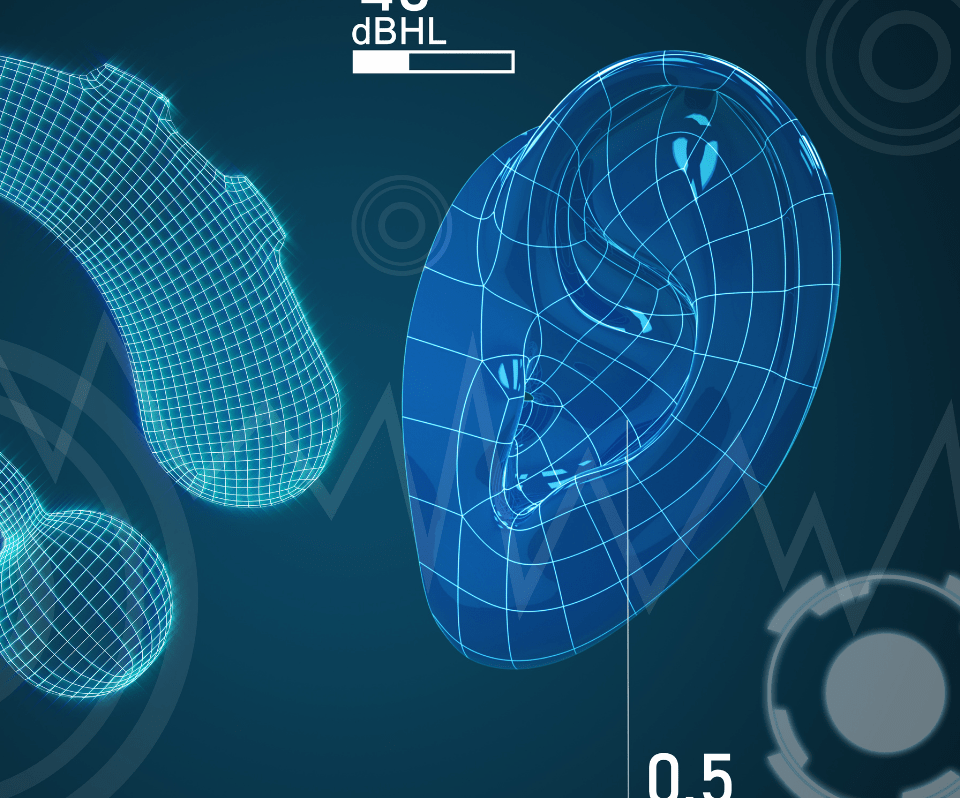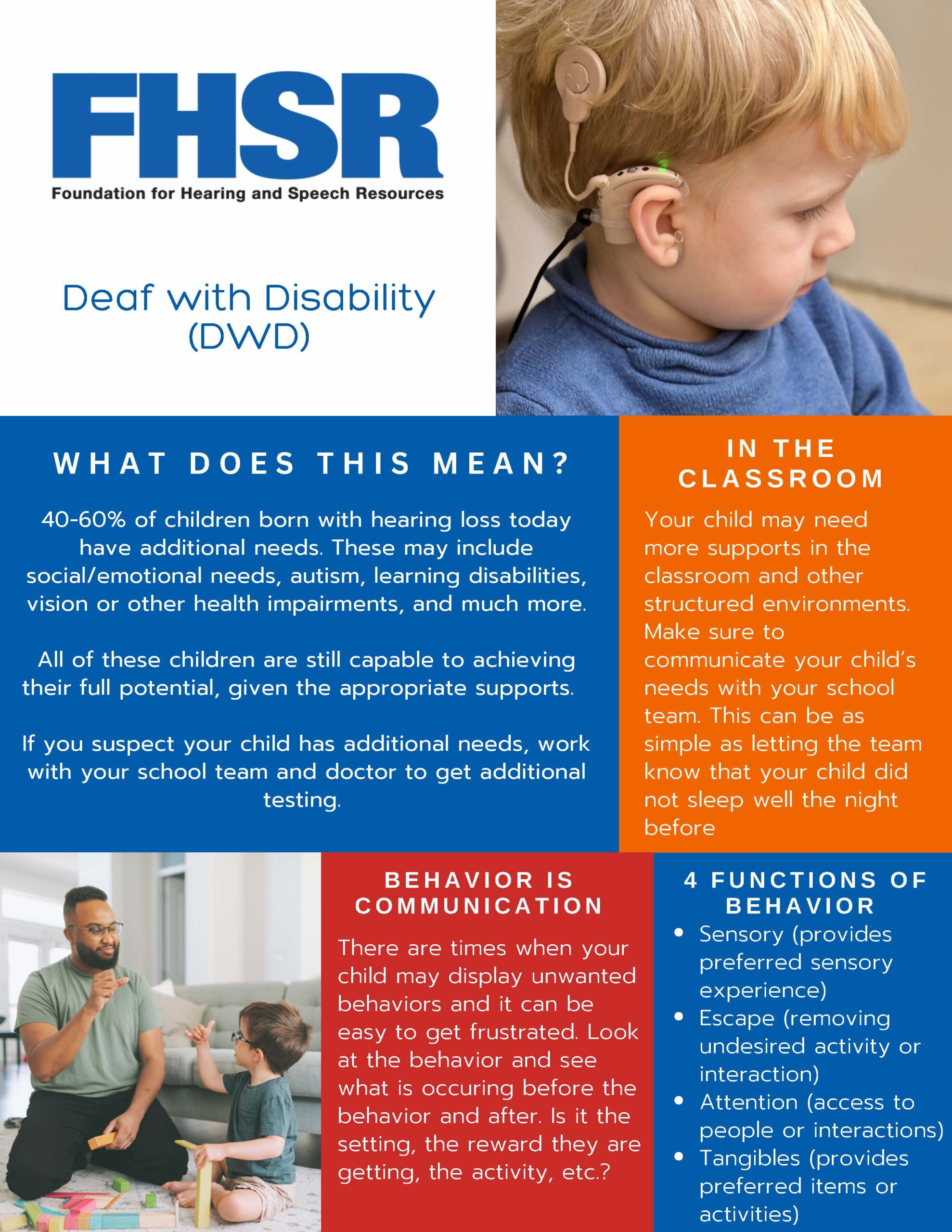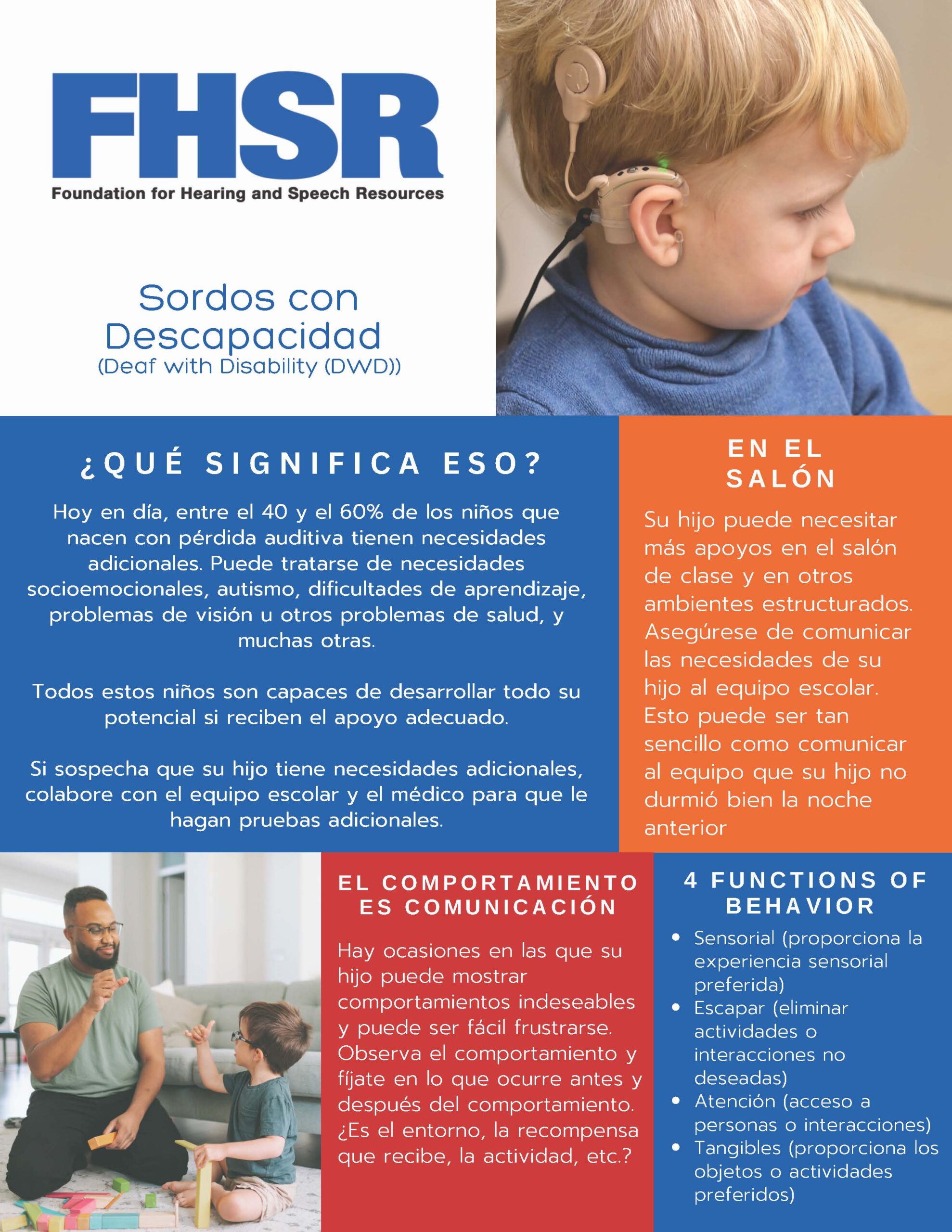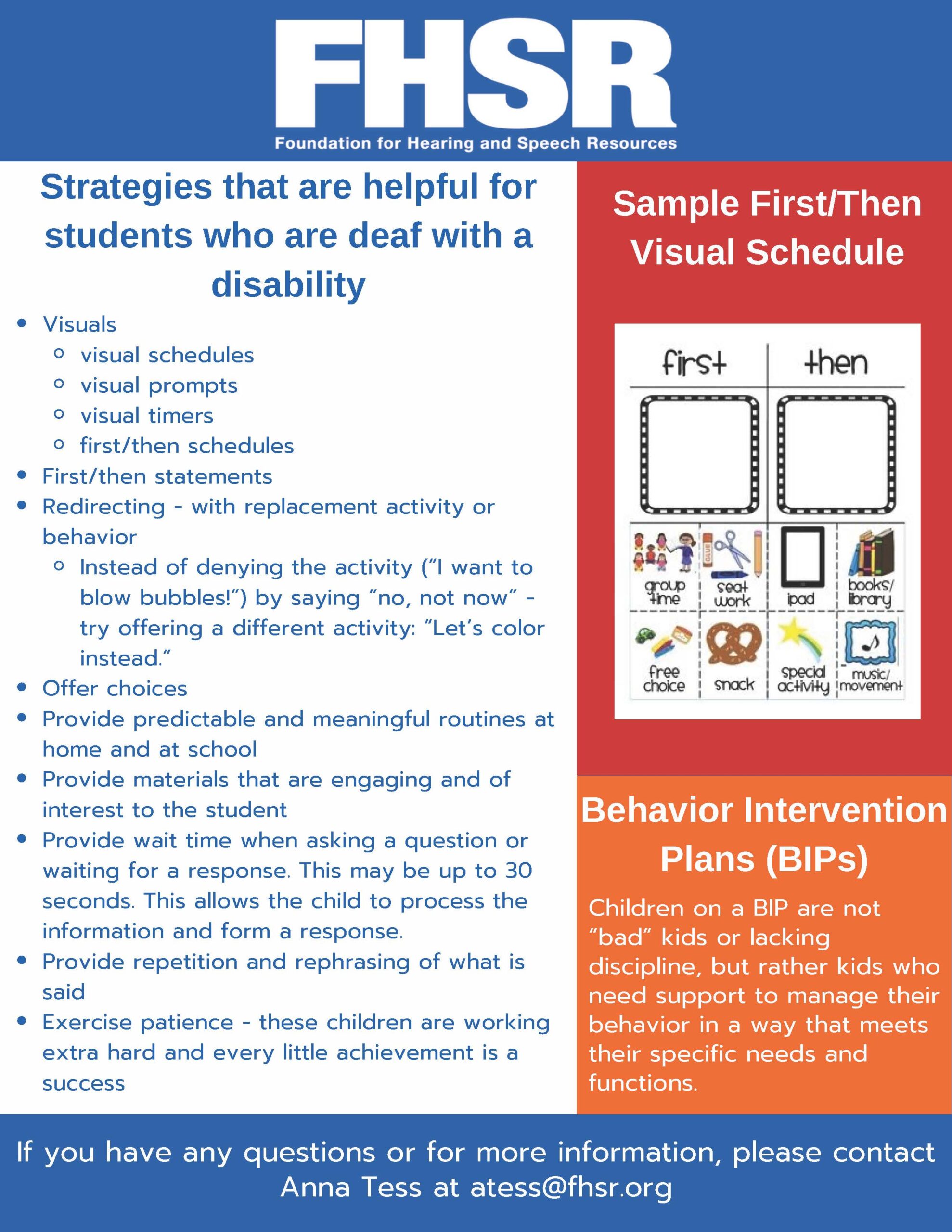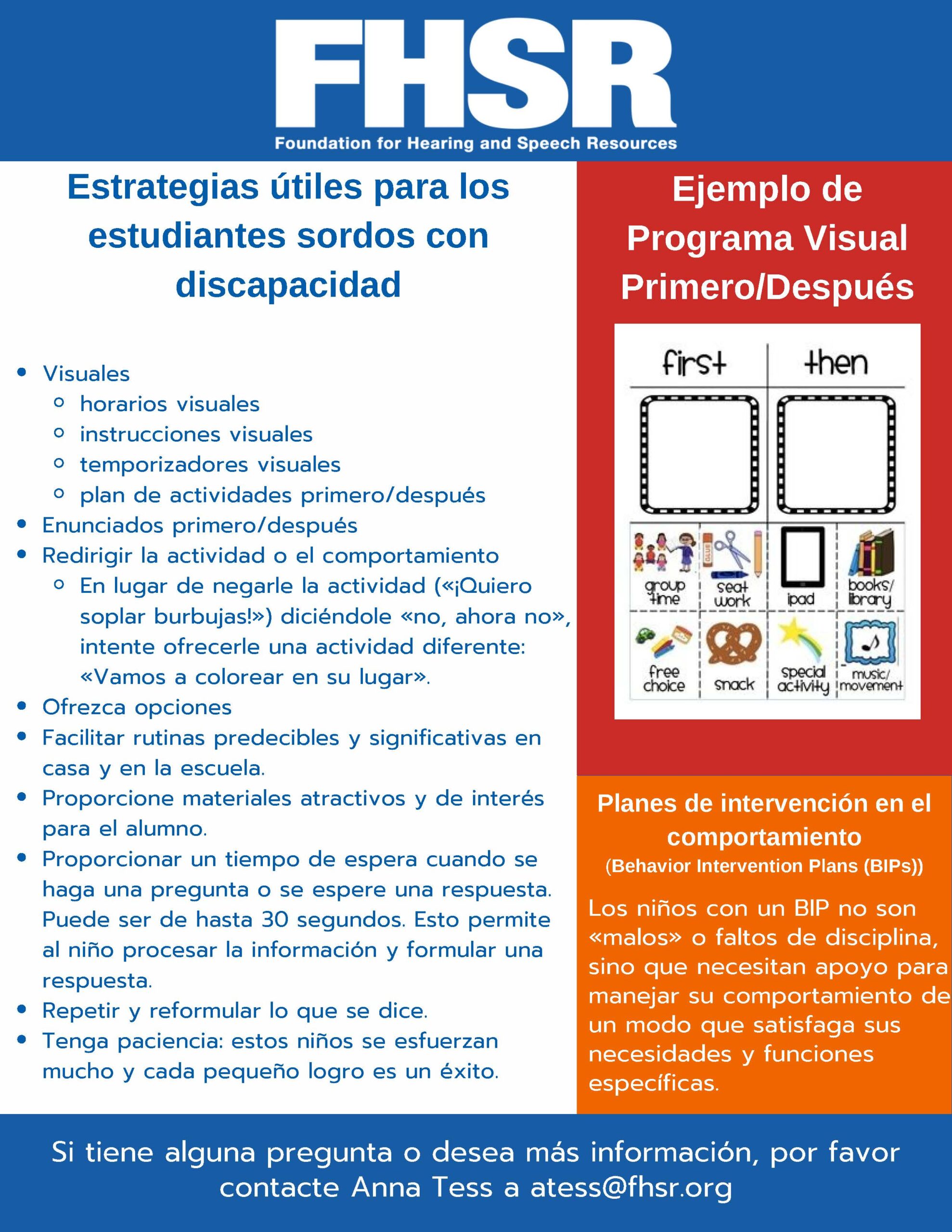1st GRADE THROUGH HIGH SCHOOL
Continuing to be an advocate for your child with hearing loss through grade and middle school will support them for more rigorous instruction and expectations. Children with hearing loss will experience many different challenges throughout their lives and some may begin in navigating the school environment. According to the CDC, 14.9% of children ages 6-19 years old have hearing loss.
ENSURING SUCCESS FOR YOUR CHILD

Promoting independence with themselves and their devices
As your child gets older, it is important that they start to learn how to take care of themselves, pick out their clothes, pack their backpack, make their lunch, etc. This promotes their choice and independence. If your child is wearing hearing devices, teach them to report when their devices don’t work and how to care for their devices is critical when they are on their own at school. Teach your child how to change their batteries, plug and unplug the FM/RM or HAT system.
It is important to teach them how to advocate for themselves, to let someone know they didn’t hear something and what accommodations they need. This could include a student asking to sit away from a vent or air conditioner or for repetition from their friends when they didn’t hear what was said.
teach your child social skills
Ensure that your child understands social cues, basic manners, can start and end conversations appropriately, and maintain eye contact with the speaker. Children with hearing loss tend to work hard to listen and communicate with their peers and it is important that they do so appropriately.
You can practice with them by having conversations, discussing pop culture and relevant topics and understanding how to listen. While watching tv or movies with your child, talk to them about social cues and the communication that is occurring. These may be spoken or unspoken. This can include how someone is feeling or thinking through their body language. This can also be understanding and inferring what someone means when they say something such as ok vs OHHHHKAYYYY. Discussing these social cues can help your child understand them if they occur in real life.

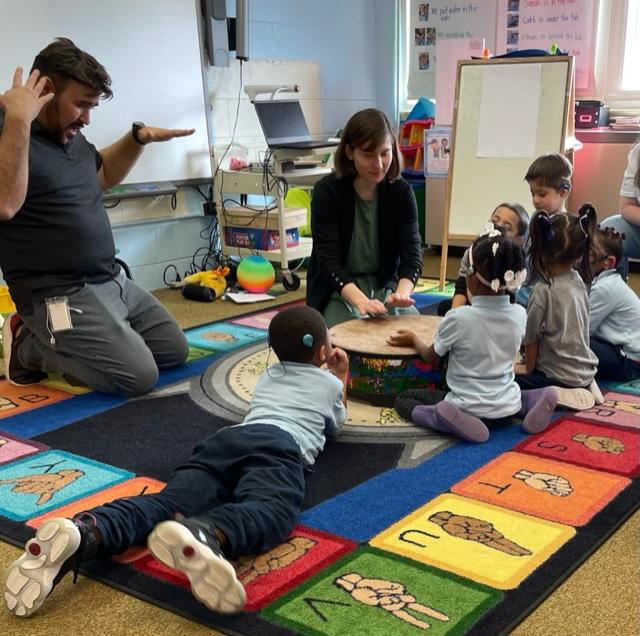
Ensure supports are in place for your child in and out of the classroom
In the classroom, ensure that the supports and accommodations in the 504 or IEP plan are in place and are being carried out by the school staff. These may include using hearing assistive technology (HAT), FM or a RM system, interpreters, repetition of directions, preferential seating, small groups, visual access to the speaker, closed captioning and more.
More accommodations can be found at Accommodations for the Deaf.
At home, you can start teaching your child independence by waking up with an alarm clock and getting themselves ready for the day. There are alarm clocks and other technology that are made for people with hearing loss and this technology can promote independence. For more information, please visit our technology page.
Transitions - Middle School and High School
The transition from grade school to middle school and then again into high school can be difficult for any child. There are new teachers, routines, schedules and expectations. With these transitions, talk with your child about what to expect, how to advocate for themselves and what supports they need. This may include walking through the building a few times and meeting with teachers before your child starts, creating a written and a laminated schedule with directions, room numbers, etc. Encourage your child to try new activities such as clubs or sports that interest them. This is a great place to meet new people with common interests. While looking at sports and activities that your child may like, search for other parents who have a child who has played that sport or activity. Meeting with other parents of children with hearing loss can allow you to learn how they use the HAT/FM/RM system in activities with their child, adapted helmets for sports, and used water protection. Meeting other parents with children with hearing loss can be hard but there are facebook groups and different organizations that hold events for children with hearing loss. Some of these events can be found through FHSR, the Chicago park district, Chicago Hearing Society, neighborhood or community park district and your child’s school or community.


High School
DEAF WITH DISABILITY
A child with hearing loss may hit milestones at different times depending on the age at which their hearing loss was identified, the age at which they began using hearing assistive technology (if using any), and much more. That being said, if you think your child should be progressing faster or mastering certain tasks, you may want to consider whether there is something more than hearing loss going on. An estimated 40-60% of children born with hearing loss today have at least one additional diagnosis. These may include low vision, a development delay, a learning disability, attention-deficit/hyperactivity disorder (ADHD), autism spectrum disorder (ASD), sensory dysregulation, vestibular dysregulation or other health impairments. All of these children are still capable of achieving their full potential, given the appropriate support.
Pay attention to whether your child is meeting gross and fine motor skill milestones, lagging behind on speech and language, or falling short of the academic goals outlined in their IEP. There are many confounding factors when it comes to hearing loss and other needs so you will need to ensure that your child’s hearing and language needs are being met as well. If your child’s development is not progressing as expected, work with your Early Intervention or school-based team to see if there are more supports available for your child.
USING HEARING ASSISTIVE TECHNOLOGY (HAT) / REMOTE MICROPHONE (RM) SYSTEMS
There are many different terms for a HAT/RM system. Some people will call these devices assistive listening devices or FM. A HAT/RM system is an assistive listening device in addition to the child’s hearing aids, cochlear implants or BAHA devices. All HAT/RM systems have a microphone that can be worn by the speaker and the sound is directly transmitted to the student’s listening device. The Roger System can also be placed on the child’s desk in a group setting and it will pick up the sounds of the speakers around them. More information about the Roger and FM system can be found here.

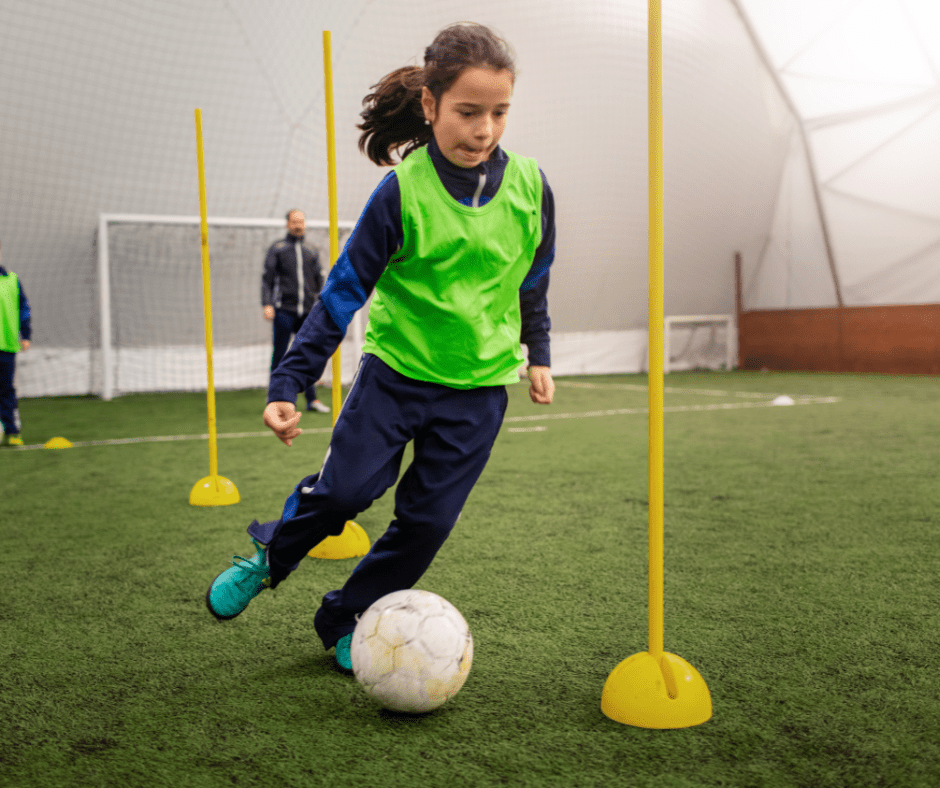
PLAYING SPORTS
If your child plays sports, ensure the coaching staff understand your child’s hearing loss and how they can best communicate with your child. Talk to your child about if they would like to use the RM system at practice or while playing. Check with the coaches and refs to ensure that your child can use their RM system while playing.
If your child is playing a contact sport, ensure their devices are secure and that the coaching staff and other players understand what to do if the devices fall off. Securing devices can be tricky and you may need to get creative by using headbands, hats, clips, skullcaps, double sided tape, etc.
EXPLORE OTHER AGES AND STAGES
MUSIC SCHOLARSHIPS FOR GRADE AND MIDDLE SCHOOLERS
Through our partnerships with Merit School of Music and the Old Towne School of Music, we offer individual instrument lessons for students with hearing loss. Whether you have a student who would benefit from a scholarship, or you would like to provide a scholarship to these amazing students, we have a great opportunity for you to participate.
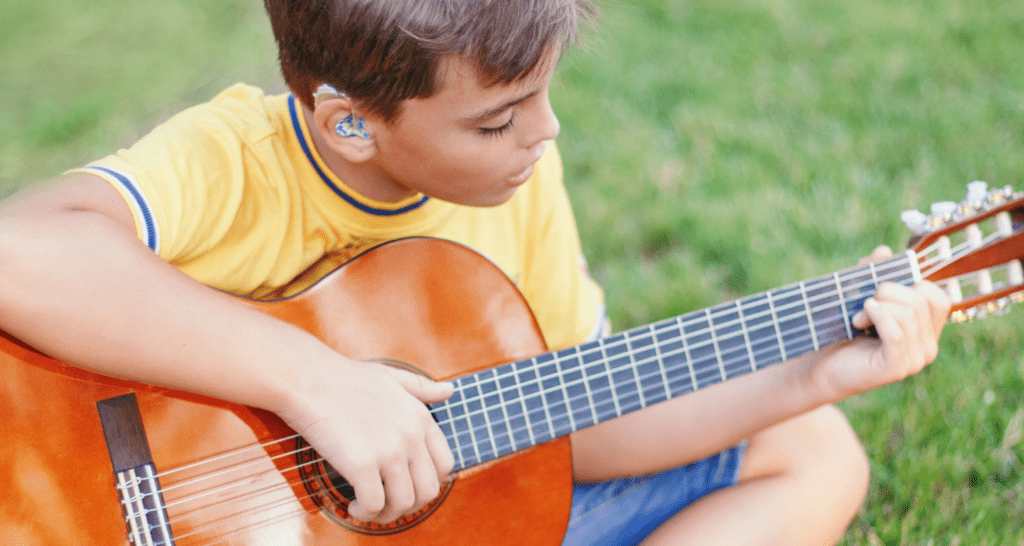
BE A PART OF IT ALL.
Give the gift of hearing.
Every contribution to FHSR helps improve the lives of deaf and hard of hearing children.
We hope you will consider making a gift to support these children. Thank you!

